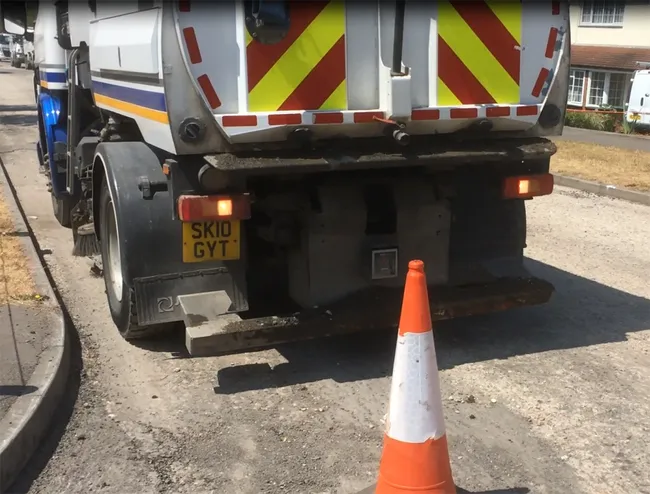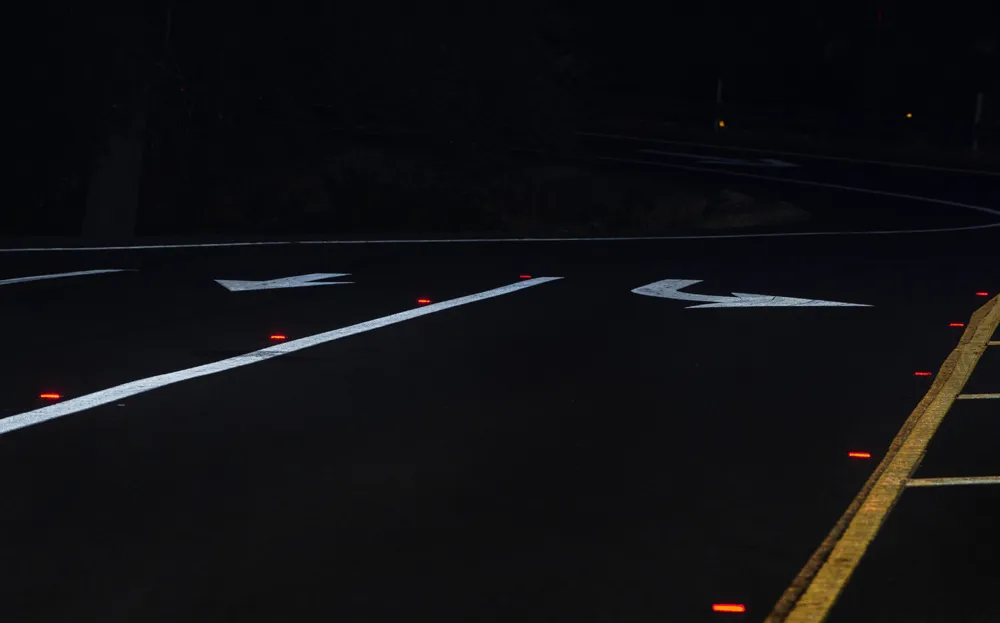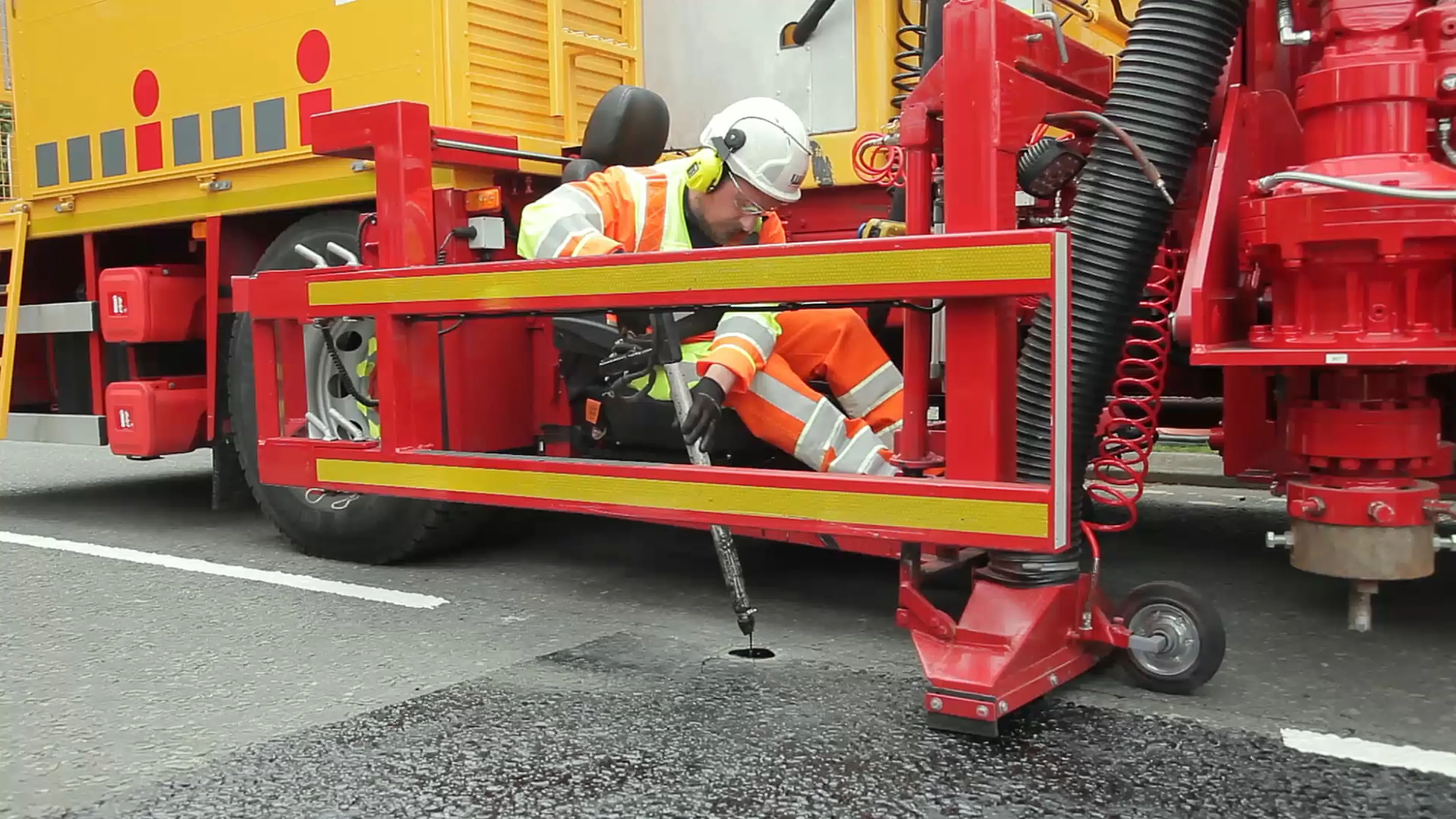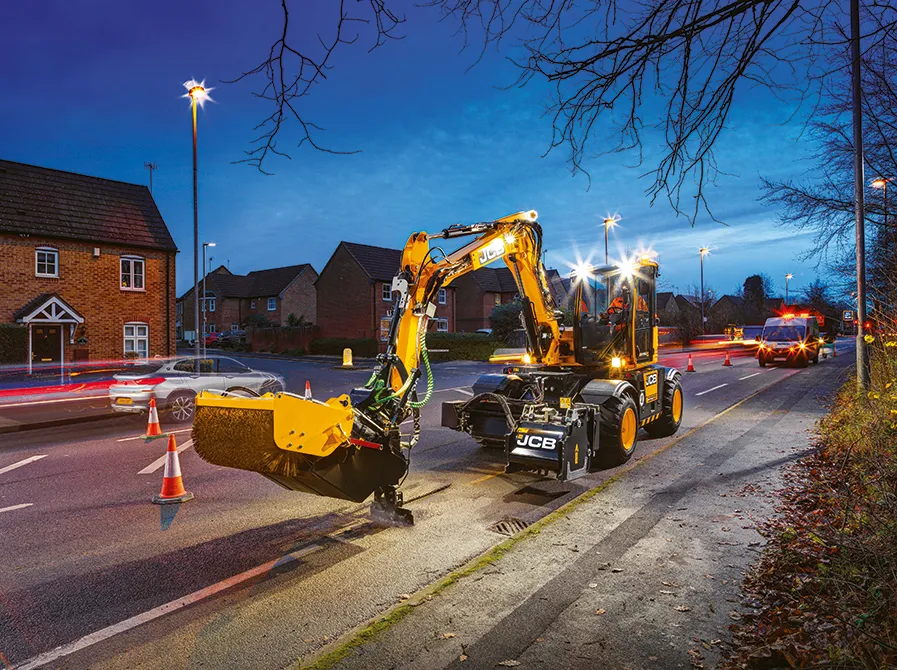
UK contractor
The system - provided by Vision Techniques – emits low-energy microwaves from a unit mounted at the rear of the vehicle. If an obstruction or hazard is detected then the system will automatically activate the vehicle’s braking system.
Banksman Auto Braking radar was recently trialled on a Eurovia Surfacing site in Essex and is now being deployed on Sims Milling Sweepers operating in Hertfordshire, explained Neil Huntington, Eurovia’s contracting regional director.
“Initial feedback from site has been very positive,” he said.
“While this system must be used in conjunction with other Safe Systems of
Work (SSOW) and site-specific risk assessments, it is very clear that the Banksman Auto Braking radar system will further help eliminate the potential risk of collisions on our sites.”
The system’s frequency modulated continuous wave (FMCW) technology transmits a radar signal with a frequency increasing over time to create a signal sweep. The signal is reflected by an obstacle’s surface; this reflected, or echo, signal is picked up by the antenna.
As the transmitted signal is constantly varying in frequency, the echo has a slightly different frequency compared to the signal being transmitted at that moment. This frequency difference can be translated in a linear distance. This makes FMCW microwave technology much more effective than an ordinary reversing radar.
The system will warn the driver audibly and also visually with an in-cab display. The brake is automatically applied if the driver fails to react to the danger within the final “red danger zone”.








